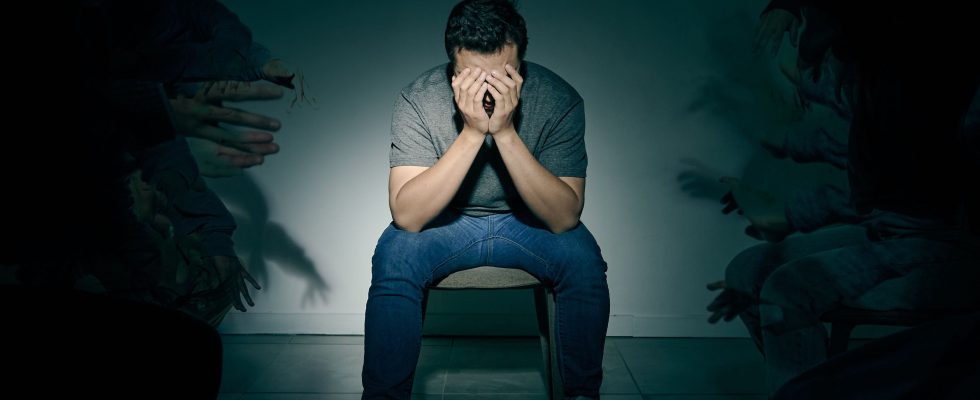There are investigations that we prefer to ignore. Like the one carried out a year ago on the mental health of young people in the Ile-de-France region. According to the indications of this first barometer, seven out of ten young people are affected by anxiety disorders, and one in four have thought about committing suicide over the last twelve months. Results so terrible that its initiators, overcome by doubt about the methodology chosen, chose not to publish this first barometer.
A year later, the second edition, produced by the FondaMental foundation, Ipsos and the Ile-de-France region, is nearing completion, and will be made public within a few weeks: the tone, unfortunately, remains just as dark, reflecting the sharp deterioration in the mental health of 18-30 year olds. Anxiety disorders, signs of depression, suicidal thoughts… Since the Covid pandemic, psychological pathologies are booming, particularly among adolescents and young adults, lifting the veil on a subject that has long remained taboo. Because France may be at the top of the countries consuming psychotropic drugs, the psychological state of its inhabitants rarely makes the front page of the television news, except occasionally during news items… This reality is nevertheless alarming. One in five French people suffer from mental disorders, or 13 million people. The economic cost (direct and indirect) is estimated at more than 160 billion euros (ahead of cancer). Above all, after the acceleration observed during the pandemic, the alert level still remains very high, with more than 3 million French people suffering, for example, from severe psychological disorders.
Paradoxically, Covid has made it possible to change the way we look at these pathologies. We talk less about madness, and more about mental illness. Above all, we dare to talk about it, among doctors, caregivers, families, young people or the sick. “It is now better accepted that it is a disease like any other, which does not only concern the brain, but the entire body,” summarizes Marion Leboyer, general director of the FondaMental foundation.
The other good news comes from the fantastic scientific progress underway. Brain imaging, genomics, immunology… Innovations are multiplying, facilitated by the digital shift, and they contribute to better identification of diseases and better therapeutic monitoring, thanks in particular to the development of precision psychiatry. Enough to save time to make the right diagnosis and ensure appropriate care. The tools are within reach, provided that funding is found – France remains lagging behind – and specialists. In this area, there remains an enormous effort to be made among our future doctors: in 2023, of the 547 positions to be filled in psychiatry, 67 places remained vacant. And the discipline ranks in the bottom ranks of internal students’ choices, very far behind plastic surgery or ophthalmology, at the top of the ranking… They are crazy, these doctors!
.
